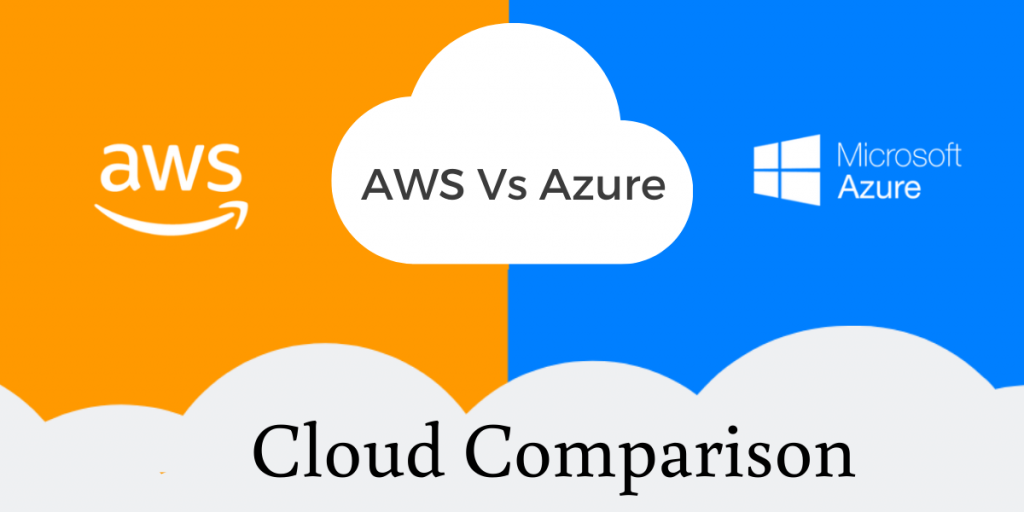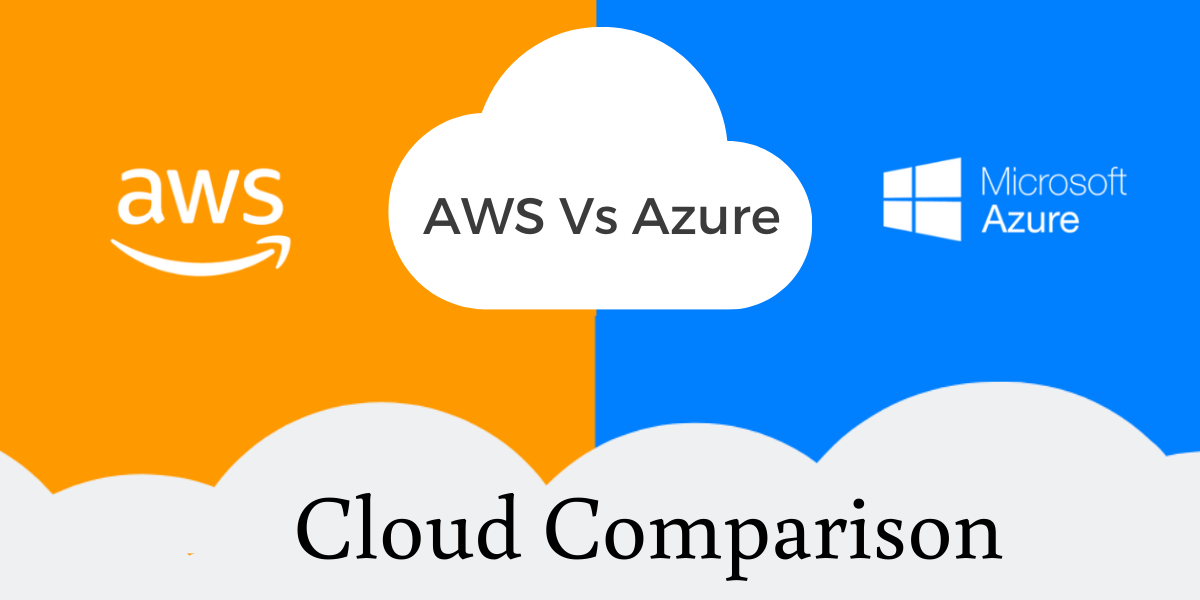10 Best Azure Services to Look Out For in 2021
The constant technological additions driving the present world change the way everything is done. Cloud computing is an advancement that helps in reforming traditional perspectives on technology. Many service providers have come out in the present times while making a strong impression in the domain of cloud computing.
One such popular name is called Microsoft Azure that can be found easily in the cloud computing landscape. As a result of the ongoing digital transformation, multiple numbers of companies are dedicatedly focusing on the migration of their legacy systems and applications to the cloud. Integration of cloud in business strategies has now become a common step for all businesses.
This implies that the organizations must be on the lookout for industry trends in cloud computing for experiencing the best possible business benefits. In this blog, we will be understanding what Microsoft Azure is and the azure cloud services to know which services must be looked out for in 2021.
What is Microsoft Azure?
Microsoft Azure can be defined as a combination of multiple cloud computing services that include both proprietary and open technologies. Microsoft provides the proprietary technologies and includes the remotely hosted managed versions. The open technologies include some examples of Linux distributions that can be deployed on a virtual machine.
Based on the consumption of resources as compared to the reserved capacity, the pricing of Microsoft Azure is decided. This essentially means that there is no need to install an on-premise server or even lease physical servers from traditional data centers.
Different enterprises can use Azure cloud services for the purpose of deploying, managing and building complicated or simple applications. Azure offers expert assistance for programming languages, databases, services, frameworks, and operating systems. Simultaneously, the Azure development is also well known for modifying the traditional viewpoints on the basic organizational procedures.
The cost of Azure cloud services and Azure integration services is entirely based on the kind of services, physical locations, and storage needed for hosting Azure instances.
Microsoft Azure Services:
Microsoft Azure has been on the right track to offer strong competition to other entrants in the industry. The speed with which companies can deploy new and well renowned Azure cloud services is a perfect validation for the accelerated development of Azure.
1. Virtual Machines: Virtual machines play a significant role in managing workloads and running high-performance applications. This is one of the most critical azure services when the point is business migration and data encryption.
This service helps in building virtual machines with the help of Windows or Linux in almost no time. You will be able to scale up to multiple VM instances and keep your data secure while complying with all the regulations.
Another reason why this service is even more desirable is the per-second billing that it introduces. Different kinds of virtual machines provided by Azure include computer-optimized virtual machines, memory-optimized virtual machines, and general-purpose virtual machines.
So basically, the virtual machine is one of the main offerings in the computer group. It is this service that helps in creating Windows along with the Linux virtual machines promptly. One of the most important features of the Azure platform is the VM service based on your requirement. It helps in getting compute-optimized virtual machines, burstable virtual machines, general-purpose virtual machines, etc.
2. Azure DevOps: The Azure DevOps is another service that is a part of Azure development that helps in better planning and smart collaboration all thanks to the wide dev services. It is actually one of the first Azure cloud services that were introduced in the market.
The Azure DevOps helps in planning, monitoring, and discussing the work with a wide number of agile tools. The mere presence of Azure Pipelines makes it simple for a business to build easily, test, and deploy easily with the help of CI/CD.
Furthermore, you can utilize the Azure Test Plan to test and ship while using Azure Artifacts to share packages with a dev team. With the help of Azure Repos, it is possible for you and your team can simply build better codes with some advanced pull requests and file management.
Hence, Azure DevOps is a well-known service on the market considered suitable for superior collaboration and smarter dining for ensuring quick delivery.
3. Azure Cosmos DB: The Azure Cosmos DB is without any doubt one of the most popular Azure cloud services It is a fully managed NoSQL database service designed to make sure single-digit millisecond response time. The businesses leverage this service to ensure quick writes and read across the globe.
Other than featuring enterprise-level security, the Azure Cosmos DB paves a path for organizations to develop applications quickly because of the APIs for SQL, Cassandra, and MongoDB. With the use of automatic scaling, the Azure Cosmos DB guarantees business continuity with prompt unlimited elasticity. It also enables us to acquire real-time insights into data operational in a business.
4. Azure Active Directory: In case you are planning to explore Azure careers, it is important to learn more about Azure Active Directory. While creating a seamless environment for the administrators, the Azure Active Directory facilitates the user ID and password management for users for logging in at the same time.
The Azure Directory is known for its exceptional ability to provide businesses with multi-factor authentication for the mere purpose of protecting users from identity thefts. This is a user governance service that makes sure secure access to applications is possible irrespective of the location of users.
Offering a single set of login credentials, this is a service that makes it simple for the application developers and administrators to use secure engagement.
5. Azure Content Delivery Network: The Azure Content Delivery Network is actually one of the most important azure categories that enable a business to accelerate and experience growth. It promises secure content delivery all over the world because this service is designed to run in integration with a number of different services including storage, web apps, and Azure cloud services.
Azure CDN is that azure cloud service that offers a superlative customer experience by decreasing the load times and providing responsive speed. It is a developer-friendly service that features robust security for minimizing and eliminating any threat found on the content delivery network. Additionally, you will be able to translate the granular customer workflows into tangible and actionable engagement insights.
6. API Management: Yet another element of the Azure cloud services that helps the businesses to effectively achieve all their outcomes is called API Management. It is a multi-cloud management platform that is equipped to analyze, manage, and deploy the APIs while making sure of an efficient and unified management experience.
This service is particularly designed for businesses that are involved in publishing APIs to internal and external customers. Not only will you be able to authorize the usage of APIs but you will also facilitate the mocking and versioning of APIs.
API management is a service that improves the way in which internal teams and customers discover the API. One of the best parts that it offers is improved security which keeps all the APIs protected with the help of IP keys, tokens, and filtering.
7. Azure Backup: A vital element of the Azure cloud services, Azure Backup is one of the most popular services amongst the businesses that are struggling with backing up the on-premise data in the cloud. This service by Microsoft Azure is a one-click backup solution that can be used for easily backing up the SQL workloads and VMs in an encrypted format for protecting the sensitive data.
This is a service that also enables you to keep an application consistent with the help of Linux and Windows. Additionally, it will also be possible to manage the built-in backup from the central backup portal that makes the entire backup operation entirely effortless.
8. Azure Site Recovery: The Azure Site Recovery service is one of the Microsoft Azure services that is and will be widely appreciated all across the globe. It is a built in disaster recovery service that makes it simple for a business to uphold the continuity while facing major IT challenges.
Other than the fact that it is easy to set up, this service is highly cost effective and offers the required flexibility. In fact, Microsoft has also bagged the position of a leader in the native disaster recovery in the service category.
Assisting to keep the maintenance costs low, the Azure Site recovery service paves the path for reducing the downtime and also helps in testing the disaster recovery plan without affecting the actual work. Furthermore, the site recovery site also enables you to make everything simple for you to comply with the standard industry regulations such as ISO 27001.
9. Azure Bots: Making things even simpler for the businesses to develop bots, the Azure Bots service is made to improve the end user experience. Irrespective of whether you want to build your own virtual assistant or a Q&A based bot, it is possible to do the same with the Azure service. As one of the most well liked Azure services, the Azure Bots can be easily made with the open source tools and SDKs.
One of the best parts is that you can integrate a powerful AI in the bot for the simple purpose of enhancing interactive learning and customer experience. The extensive bot framework helps in managing a high volume of inquiries in a seemingly simple way. In addition, it is also possible to integrate the bot across communication channels such as Messenger, Cortana, Skype, etc.
10. Azure Logic Apps: Before jumping to the final conclusion on if a person should explore an Azure career or not, one must definitely understand that the possibilities are unlimited with Azure cloud services. Logic apps are an integral part of the services.
This service allows building a very powerful integration solution in almost no time. It can help in redefining the experience by automating an entire workflow and keeping the business-critical applications connected.
The logic apps makes it simple for you to also create virtual business processes and integrate with a wide range of SaaS applications at one time. By decreasing the integration challenges to a great extent, this service helps in empowering the BSB/EDI, EAI automation as well.
In sum, it can be easily said that the logic apps are highly effective and are gaining immense popularity in coming up with efficient integration solutions for applications. It is an important feature in the wide network of SaaS connections such as Google Cloud, Twitter and Office 365 and cloud based connections. It helps in connecting with devices and data in any location while helping to operate better with trading partners through electronic data interchange standards.
Conclusion:
Azure cloud services are suitable for solving a wide range of business operations. The broad range of services offered by Microsoft Azure amazes the users when it comes down to choosing the best Azure program. Regardless, it is imperative for any organization to always consider specific requirements before going for a particular set of Azure app services.
On the other hand, the services that are discussed here are likely to be used in different applications by companies in 2021. It is necessary to consider the value when it comes to making the right choice of service. The ultimate goal of enterprises is anyway to build a safe cloud platform for the creation of cost effective and reliable applications.
For everyone who works on the Microsoft Azure portal, an important understanding of the AWS service is very important. The year 2021 will be ruled by these services and you must make sure that you are well aware of what each of them offers. In case you need more help on understanding more about the Azure Cloud Services, get in touch with the expert team of Encaptechno for assistance.
10 Best Azure Services to Look Out For in 2021 Read More »
Cloud Services






